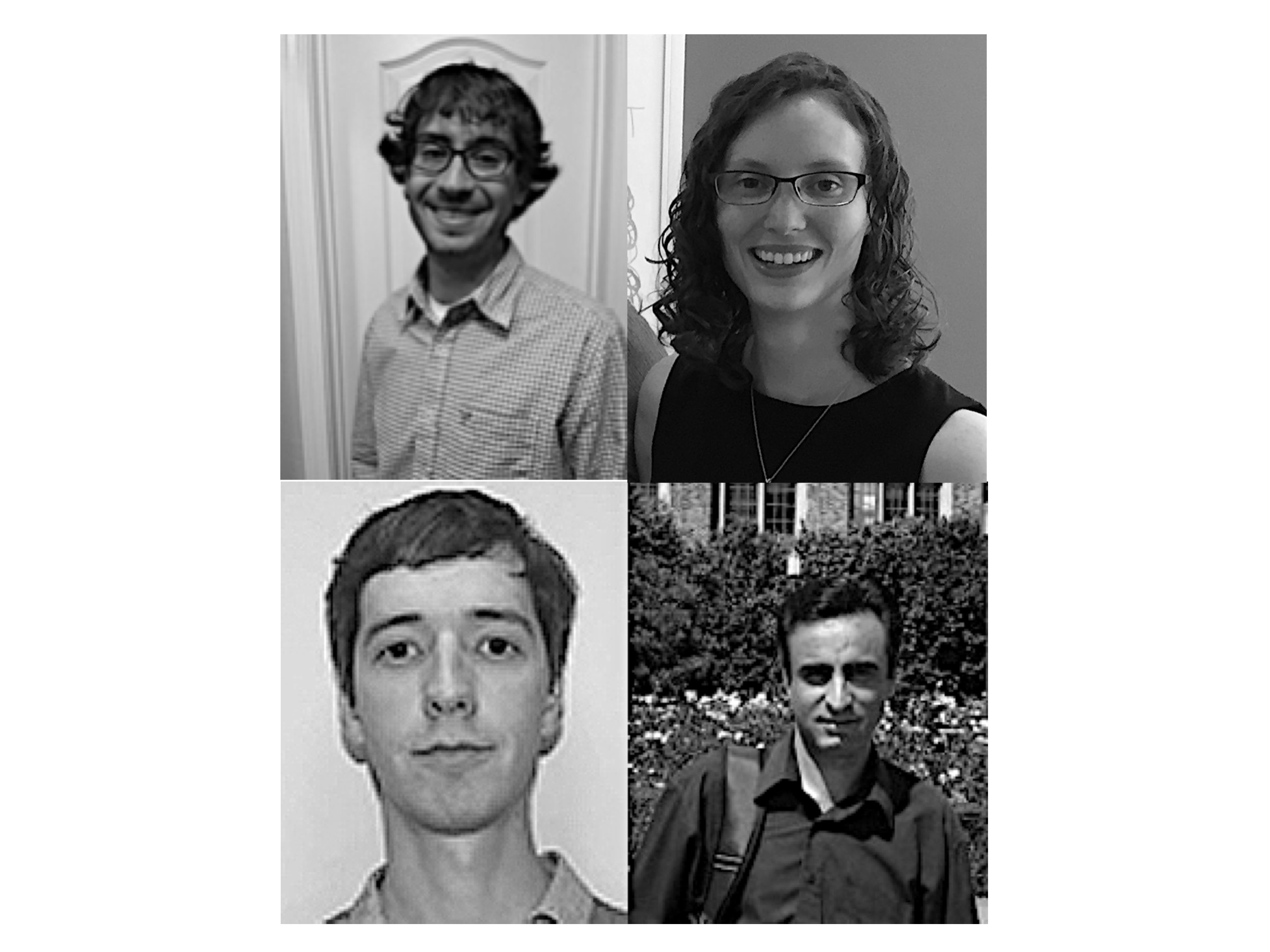BioXFEL Postdoctoral Research Award
 Purpose: The BioXFEL STC has reserved discretionary funds intended to support a unique project for a postdoctoral scholar of the BioXFEL Center. This funding is competitive and will be awarded based on the merit of the work to be accomplished and its cohesiveness with the goals of the Center. Our first fellowship was awarded to Michael Thompson. In round two, BioXFEL awarded two postdocs, Benjamin Stauch and Ahmad Hosseinizadeh for their novel research projects. Most recently, Andrea Katz was awarded in 2019.
Purpose: The BioXFEL STC has reserved discretionary funds intended to support a unique project for a postdoctoral scholar of the BioXFEL Center. This funding is competitive and will be awarded based on the merit of the work to be accomplished and its cohesiveness with the goals of the Center. Our first fellowship was awarded to Michael Thompson. In round two, BioXFEL awarded two postdocs, Benjamin Stauch and Ahmad Hosseinizadeh for their novel research projects. Most recently, Andrea Katz was awarded in 2019.
Procedures: Funding requests must be approved by the BioXFEL supervising PI associated with the project prior to submission (an email is sufficient). Applications should be submitted by March 1, 2021, and announcement of the project will be made at the Annual International Conference. The annual maximum award is $20,000. Applications will be reviewed by an internal Center leadership group. All applications should be submitted to Bill Bauer, as a single pdf or word document. Awardees will be expected to present their results at the annual BioXFEL conference following their funding period. Both the Future Goals and Research Plan Statements should address NSF's review criteria of Intellectual Merit and Broader Impacts (more information below). A summary of the reviewers' comments may be provided to the applicants. All fellowship applications should include the following:
Required Materials:
- Personal Information: Education, work and other experience, contact information, relevant background and Future Goals Statement (1 page maximum)
- Institution Information: Name of BioXFEL associated PI (coordinating official), University and Department, Proposed Field(s) of Study
- Budget for work being proposed, including allocations for stipend, supplies, travel, professional development, etc. (1 page maximum)
- Research Plan Statement detailing the proposed research project including the broader impact and intellectual merit (1 page maximum)
Please follow NSF guidelines:
- standard 8.5" x 11" page size
- 12-point, Times New Roman font or Computer Modern (LaTeX) font
- 10-point font may be used for references, footnotes, figure captions and text within figures
- 1" margins on all sides
- Single-spaced (approximately 5 lines per inch) or greater line spacing. Applicants should not use line spacing options such as "exactly 12 point," that are less than single spaced.
Review Criteria:
Intellectual Merit: The Intellectual Merit criterion encompasses the potential to advance knowledge and understanding within the proposed field. To what extent do the proposed activities suggest and explore creative, original, or potentially transformative concepts?
Broader Impacts: The Broader Impacts criterion encompasses the potential to benefit society and contribute to the achievement of specific, desired societal outcomes.
Reviews will be consistent with NSF format, the following elements will be considered in the review for both above criteria:
- What is the potential for the proposed activity to:
- Advance knowledge and understanding within its own field or across different fields (Intellectual Merit); and
- Benefit society or advance desired societal outcomes (Broader Impacts)?
- Is the plan for carrying out the proposed activities well-reasoned, well-organized, and based on a sound rationale? Does the plan incorporate a mechanism to assess success?
- How well qualified is the individual, team, or organization to conduct the proposed activities?
- Are there adequate resources available to the PI (either at the home organization or through collaborations) to carry out the proposed activities?
For more information on Broader Impacts and Intellectual Merit, please see the NSF Broader Impacts Review Criterion and the Merit Review FAQs.
Please contact the Education Director with any questions prior to submission.



